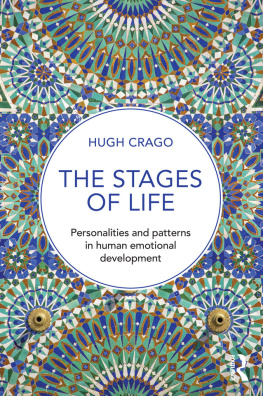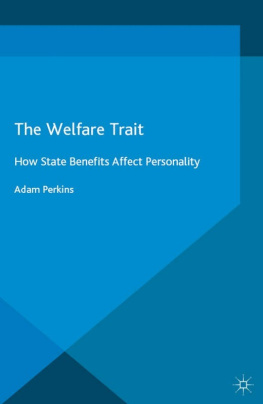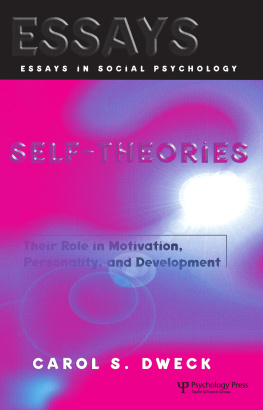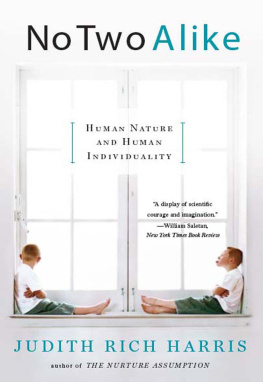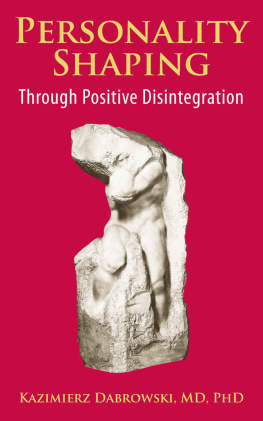The Stages of Life
Is personality in the genes?
Do our infant experiences matter, even though we cant remember them?
Why do patterns repeat within the lives of individuals and families?
The Stages of Life provides answers to these and other intriguing questions, and presents a refreshingly readable introduction to human development from birth to death. The book synthesises those theories and research findings that are most helpful in explaining the paradoxes and complexities of human personality and human problems.
The book provides a thought-provoking discussion of several important topics, including:
- how personality evolves in response to both genetic and social influences;
- how individuals differ and what this means for them; and
- how some problems tend to develop at particular stages of the life course, from early childhood through to midlife and old age.
Throughout the book, Hugh Crago relates both nature and nurture to the challenges individuals must face from early childhood through to old age. He draws attention to often-ignored clinical findings about cross-generational repetition in families, and shows how recent developments in epigenetics may supply an explanation for such mysterious phenomena.
Written without jargon, and full of new and provocative ideas, the book will be of great interest to students of counselling, psychotherapy and developmental psychology, and it also has much to offer the general reader. With its engaging examples from history, literature and the authors experiences, readers will find that The Stages of Life illuminates puzzles in their own lives and opens a road to self-acceptance.
Hugh Crago is Adjunct Fellow in the School of Social Sciences and Psychology at Western Sydney University, Australia.
Praise for Hugh Cragos recent Entranced by Story
A book of extraordinary scope and ambition
Ralf Thiede in Childrens Literature Association Quarterly
Cragos ground-breaking book has all that one expects of a visionary work
Mateusz Mareki in International Journal of Childrens Literature Research
Reading the book is like listening to an experienced and entertaining guide
Wolfgang Loth in Zeitschrift fr Systemische Therapie und Beratung
The Stages of Life
Personalities and patterns in human emotional development
Hugh Crago
First published 2017
by Routledge
2 Park Square, Milton Park, Abingdon, Oxon OX14 4RN
and by Routledge
711 Third Avenue, New York, NY 10017
Routledge is an imprint of the Taylor & Francis Group, an informa business
2017 Hugh Crago
The right of Hugh Crago to be identified as author of this work has been asserted by him in accordance with sections 77 and 78 of the Copyright, Designs and Patents Act 1988.
All rights reserved. No part of this book may be reprinted or reproduced or utilised in any form or by any electronic, mechanical, or other means, now known or hereafter invented, including photocopying and recording, or in any information storage or retrieval system, without permission in writing from the publishers.
Trademark notice : Product or corporate names may be trademarks or registered trademarks, and are used only for identification and explanation without intent to infringe.
British Library Cataloguing in Publication Data
A catalogue record for this book is available from the British Library
Library of Congress Cataloging in Publication Data
Names: Crago, Hugh, 1946 author.
Title: The stages of life: personalities and patterns in human emotional development / Hugh Crago.
Description: Abingdon, Oxon; New York, NY: Routledge, 2016. | Includes index.
Identifiers: LCCN 2015050386 | ISBN 9781138923867 (hardback) | ISBN 9781138923898 (pbk.)
Subjects: LCSH: Developmental psychology. | Personality. | Emotions. | Life cycle, HumanPsychological aspects.
Classification: LCC BF713.C695 2016 | DDC 155dc23
LC record available at http://lccn.loc.gov/2015050386
ISBN: 978-1-138-92386-7 (hbk)
ISBN: 978-1-138-92389-8 (pbk)
ISBN: 978-1-315-68470-3 (ebk)
Typeset in Bembo
by Keystroke, Station Road, Codsall, Wolverhampton
Contents
The Stages of Life is a substantial revision and updating of my 1999 book, A Circle Unbroken . I introduced that book in the following way:
How do we become who we are? Is personality in the genes? Does our childhood dictate the future course of our lives? Can parents make or break their children? Can we change? Do we have choice?
In attempting to change ourselves, we often run up against powerful forces which we do not fully understand. It helps to know what parts of our personalities are hard wired by genetic heritage, and what parts are open to modification through introspection and conscious decisions to be different. It helps to know whether or not we can delete things in our existing personalities, or only add new capabilities and roles. It helps to know roughly what we can expect to experience at various stages of our life journey. These are the things I have tried to lay out in this book.
As you can see, A Circle Unbroken was primarily addressed to the general reader, although I hoped that it might also be of use to students of counselling and psychotherapy. While I still expect that general readers will find the The Stages of Life interesting and approachable, I have expanded key aspects to make it more useful to students. Ive updated research findings, supplied fuller references and included detailed new material on epigenetics, temperament, attachment and the structure of the brain. I have expanded my coverage of common problems that may afflict individuals at different stages in the lifespan, and examine why these conditions occur when they do. Apart from trainee counsellors and psychotherapists, I hope that The Stages of Life will supply a big picture of lifespan development for clinical, educational and counselling psychologists, supplementing the evidence-based, detail-focused texts with which they will be familiar.
I have tried to present a coherent map of how a childs genetically shaped temperament may interact with its environment to produce not only its individual personality, but also (in some cases) potential problems. The notion that some human beings might be hard wired for anxiety, shyness, sensitivity or impulsivity was unpopular with experts throughout most of the last century. Students of human development, along with most parents and teachers, wanted to believe that every child could grow up to be confident, outgoing, resilient and sensible. But a mass of evidence from researchers over the past 50 years, marginalised at first, has forced us to acknowledge that some personality traits are genetically linked, and do constrain the ways that our personalities eventually develop albeit with some room for modification. Since I wrote A Circle Unbroken , science has greatly expanded our understanding of the way that particular genes in a child elicit (pull) particular responses from their environment, or (to put it the other way around, but equally correctly) how particular aspects of a childs environment enable the expression of genes that might not otherwise come on-line. These developments lay to rest the old nature versus nurture debates. Both its genetic heritage and the way a child is parented must necessarily be involved in shaping that childs later personality. Unsurprisingly, however, the proponents of attachment theory have ignored or downplayed the importance of a childs genetically influenced temperament, while researchers of temperament have downplayed or even dismissed attachment. Both these approaches embody important parts of the truth, and in The Stages of Life I have attempted to give due weight to both.

